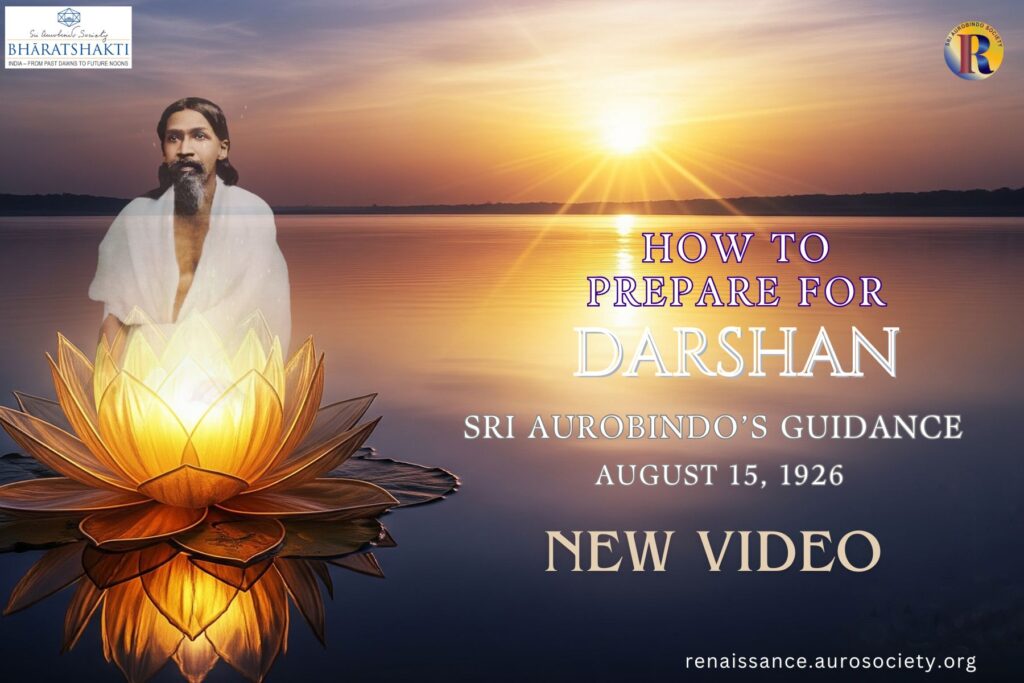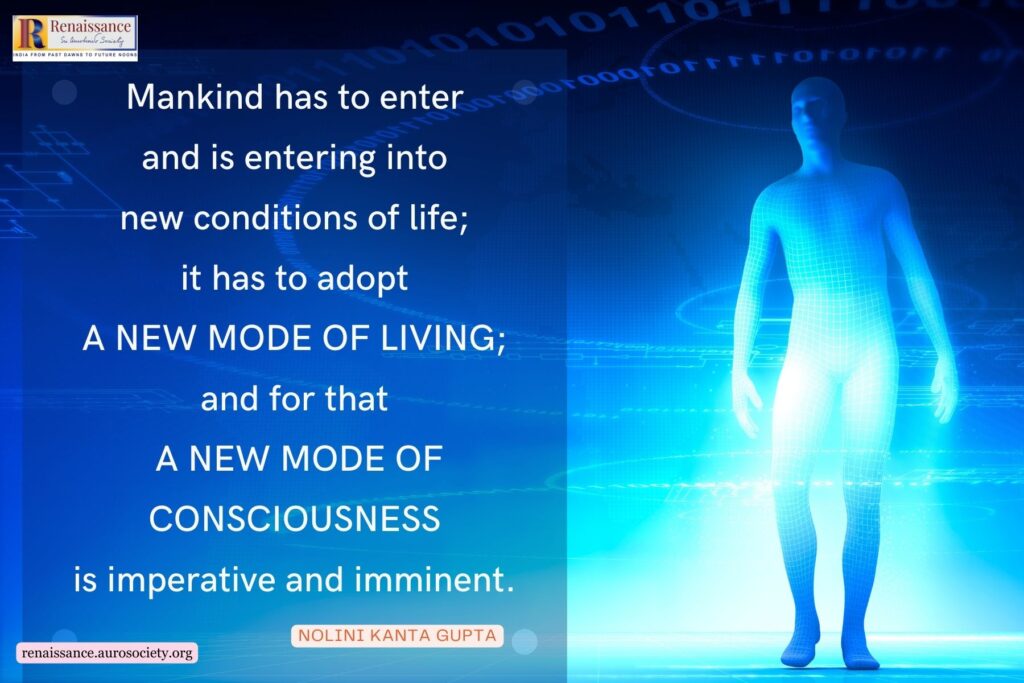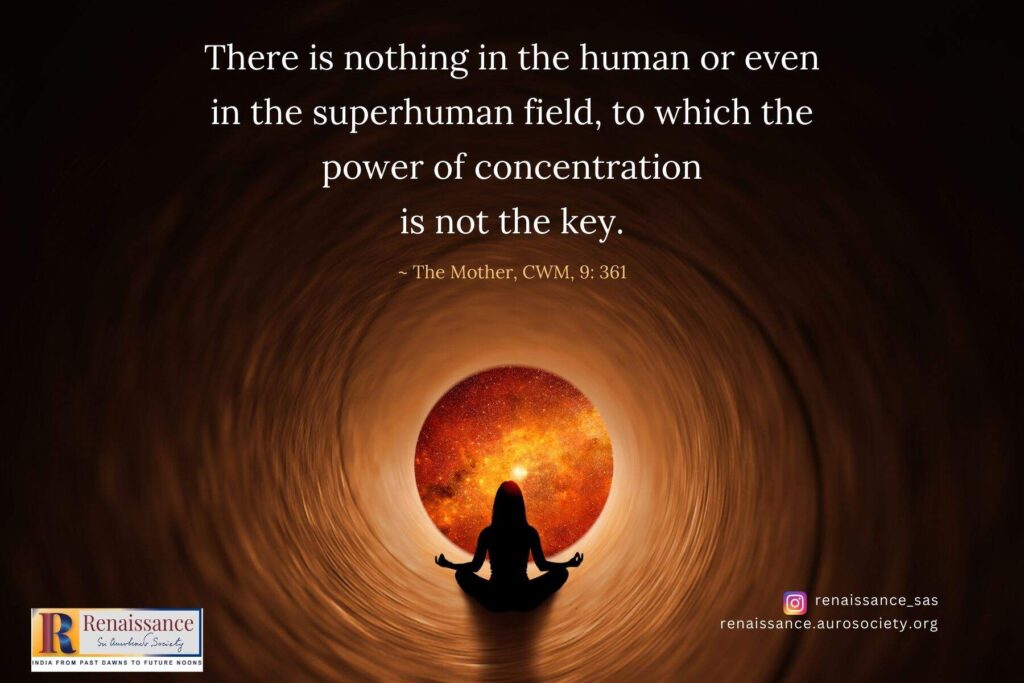Volume III, Issue 1
Author: Renaissance Editor
Editor’s note:
In a conversation with a disciple, dated June 15, 1963, the Mother commented on the experience of a Romanian political activist, Silviu Craciunas. About ten years earlier, he was being tortured in the prison by Communists. He has written all about that experience in his book titled “The Lost Footsteps” published in 1961.
The specific episode that the Mother spoke of relates to the visions Craciunas had of an unknown Indian sage. The sage’s name sounded to him as “Aurobin Dogos” which is what he mentions in his book. This name is clearly a homonym for Aurobindo Ghosh, the name by which Sri Aurobindo was known during his political revolutionary days. Because Craciunas was being imprisoned and tortured due to his politics, it makes sense that he would hear this earlier name.
The situation in the prison had become so terrible that Craciunas was contemplating suicide. Around that time he started getting these visions of an unknown Indian sage. And as he writes in his book, his conversations with the sage whom he called Aurobin Dogos gave him the strength to survive. The relevant excerpt from his book (The Lost Footsteps, 1961, pp. 166-171, accessed from HERE) is included after the Mother’s comment, with only a few minor formatting edits.
Let us begin with a quote from Sri Aurobindo where he gives us a clue to the nature of the working of his Force:
. . . when once something is there in the earth-atmosphere that was not there before, it begins to work on many sides in an unforeseen way.
~ CWSA, Vol. 35, pp. 501-502
Thus since the Yoga has been in action, its particular opening movements have come to a number of people who were at a distance and not connected with us and who understood nothing of what was happening to them. These things are to be expected for Nature is still in evolution and new Lights and Powers have to be brought down in her and made part of the conscious earth-existence.
~ Beloo Mehra

The Mother’s Comment about Craciunas’ Receptivity to the Force
“. . . do you know the story of that Romanian who was tortured by the Communists and had visions of Sri Aurobindo (he didn’t see him as he is, in fact, he saw him according to his own conception: thin and ascetic), and finally the apparition told him, “I am your soul,” and so on? But he had never read Sri Aurobindo’s name, he only heard it, and he wrote it in a very odd way [“Aurobin Dogos”]….
It SEEMS to be something of Sri Aurobindo. Anyhow it gave him the strength to go through all those tortures—appalling tortures, unimaginable.
And he was able to escape, somebody helped him escape (now he is safe in England). But before that, he suffered so much that he thought of letting himself die, and that “voice,” that apparition which came and spoke to him for hours, was what gave him courage and told him that “the soul NEVER gets discouraged, it has something to do, and you must endure.” He endured thanks to that voice.Well, similar things may have happened elsewhere and some people may have received inspirations—we cannot say.
It’s clear that wherever there is a receptivity, the Force acts, there’s no doubt.
~ Agenda, Vol. 4, p. 171
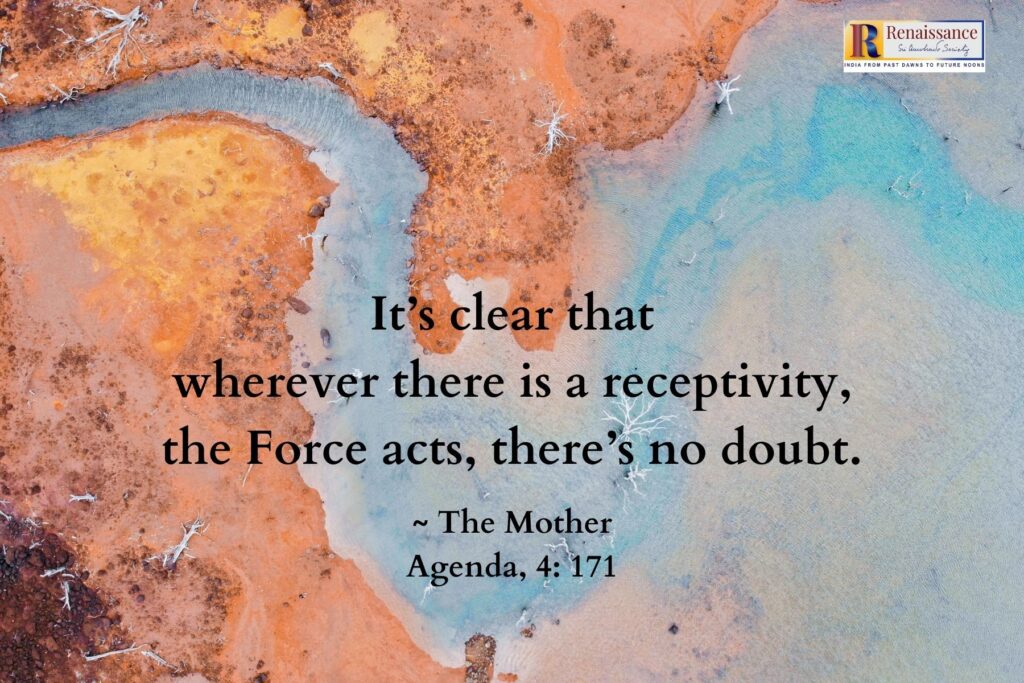
Excerpt from ‘The Lost Footsteps’ by Silviu Craciunas
Then two days before the moment which I was awaiting so feverishly, the whole team of warders was replaced by a new one
and I had to give up my plan. I was overwhelmed by frustration, I felt as if I had been crushed by an avalanche and buried under the debris so that I could scarcely breathe.
After this my hallucinations became very frequent.
One evening, when the radiator had begun its mournful music, the wall in front of me rolled back and a chain of snowy mountains gleamed in the rising sun. In the foreground was a little Indian temple dedicated to the goddess Kali. A tall tree shaded it. At its foot an old man sat with his legs tucked under him and his hands resting on his knees in Brahmin fashion. He had a long and very thin white beard. His ascetic face had the same serenity as the blue sky stretching over the dazzling peaks.
As I gazed at him he bowed his head slightly, smiled and said: “I can see you have forgotten me. Don’t you remember Aurobin Dogos, the Brahmin?”
I heard myself replying: “You have no idea how long I have been looking for you and calling you. . .”
“I had to make a long journey to get here,” he said. “It took me sixty years.”
For months after this I lived in the company of the “Brahmin” whom I believed at the time to be a real person other than myself. But these visions were different in character from the nightmare hallucinations I had had before. It seemed that, somehow, I had reached a deeper level of my being and these new experiences, instead of helping my enemies, marked the beginning of a period of spiritual integration.
I held long conversations with the “hermit” and it was “he” who argued me out of committing suicide, persuading me that life was sacred and must be lived to the last breath.
I complained to him that, locked inside these walls and thinking ceaselessly night and day without a moment’s respite, I had reached the limits of my endurance. “Tell me,” I begged him, “am I the victim of these men who hold me captive, or at the mercy of some harsh, blind laws of nature?”
Also read:
“Only One Force Acting in the World”
He explained to me his view of suffering. “Some people it destroys,” he said, “other are challenged by it to resist some evil or to undertake some positive, creative act; some are corrupted, lose control over themselves and become cruel and vengeful, others grow in strength and grace.”
“But what can a man do alone, armed with nothing but his free will, against an overwhelming evil?” I asked him.
In answer, he told me a story.
Two swallows nested under the eaves of a fisherman’s hut near the sea-shore. Teaching their young to fly, they took them out over the sea, gradually training them to cross long distances and to face the hardships they would have to undergo during their migration.
The fledgelings shot into the air, exulting in the joy of flight and freedom, but a gust of wind caught one of them and flung it down upon the surface of the waves. The small bird kept its wings outstretched so that it did not sink, but neither could it rise; floating like a leaf, it called piteously to its parents as they circled over it.
The parent swallows did their best to calm and to encourage it, then they flew back to the shore and made innumerable journeys to the water’s edge, each time carrying a drop of water in their beaks and pouring it into the sand. Thus they hoped to empty the ocean and to save their young.
“Their heroic effort is a lesson to us,” the “Brahmin” went on.
“The human will and spirit must also not be resigned at moments of crisis; it must go on looking for a solution, however overwhelming the odds. You must not accept defeat, you must not believe your efforts to be in vain. If you have the blind courage to continue to endure and to struggle, you will find a new beginning in your life.”
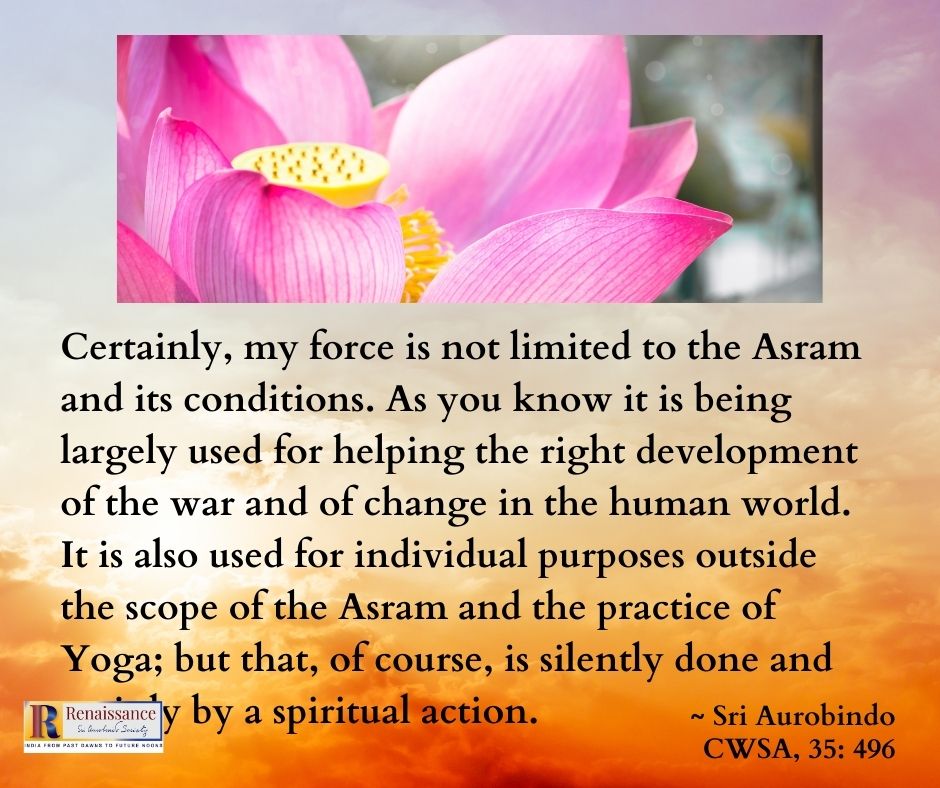
My conversations with the hermit living in solitude near the temple to the goddess Kali had lasted several months. Outside spring was appearing; the strength of the light and a suspicion of warmth in the air were the first signs. Who was the “Brahmin”? Why was he trying to give me precious support?
Understanding my perplexity, he gently held out a pale, skeleton like hand and stroked my forehead with his cold fingers. Somehow transfigured, he said to me with emotion:
“You want to know who I am? I am your spirit; your reason! You appealed to me in a moment of abject despair. In your isolation and helplessness, only I am capable of encouraging you to bolster your morale and strengthen your will; apart from me, there is no one who is able to come to your aid. Put your trust in my strength and you will never regret it!”
This encounter was indeed a turning point in my existence. Gradually my nightmares left me and I discovered an inner calm and balance and achieved control over my mind and body.
After days and weeks of practice I found that I could sit motionless on my chair for hours, my head leaning gently against the wall and my eyes open. I breathed deeply and quietly, my will controlling my heart-beats and keeping them steady.
Hunger and fatigue took less toll of my strength than when I had dissipated it in pacing up and down my cell, fighting against drowsiness. My small ration of food and the two or three hours’ sleep I was allowed out of the twenty-four were now sufficient for my bodily needs.
To detach my mind totally from my surroundings took more time and effort.
At first I told myself that I was a spectator in a darkened room: my prison life was nothing but a film projected on a screen, which I trained myself to interrupt at will. At a later stage I succeeded in looking upon my body, sitting motionless in the chair, as though it were a photograph. Still later I felt my spirit able to escape the prison walls and undertake long journeys.
The warders were puzzled by the transformation which had taken place before their eyes: a man who had been frantic, driven to the verge of madness by lack of sleep, now sat calm and as still as a statue. From time to time they knocked on the door and ordered me to move my head or blink my eyes, to make sure that I was still alive and lucid. Inwardly I had reached a peace and a serenity which I had never known before.
Time no longer dragged; solitude was not a hardship, it was the opportunity for ceaseless contemplation. Freed from its anxieties, my mind devoted itself passionately to pure thought.
I now longed to survive—even, if need be, in prison — for I was enchanted by the happiness of my new spiritual freedom. I longed to encompass the universe, to search its mysteries, as inexhaustible as infinity. At the same time this transformation made available to me a source of energy which enormously increased my powers of resistance to my adversaries.
This triumph of reason over madness radically changed my whole life.
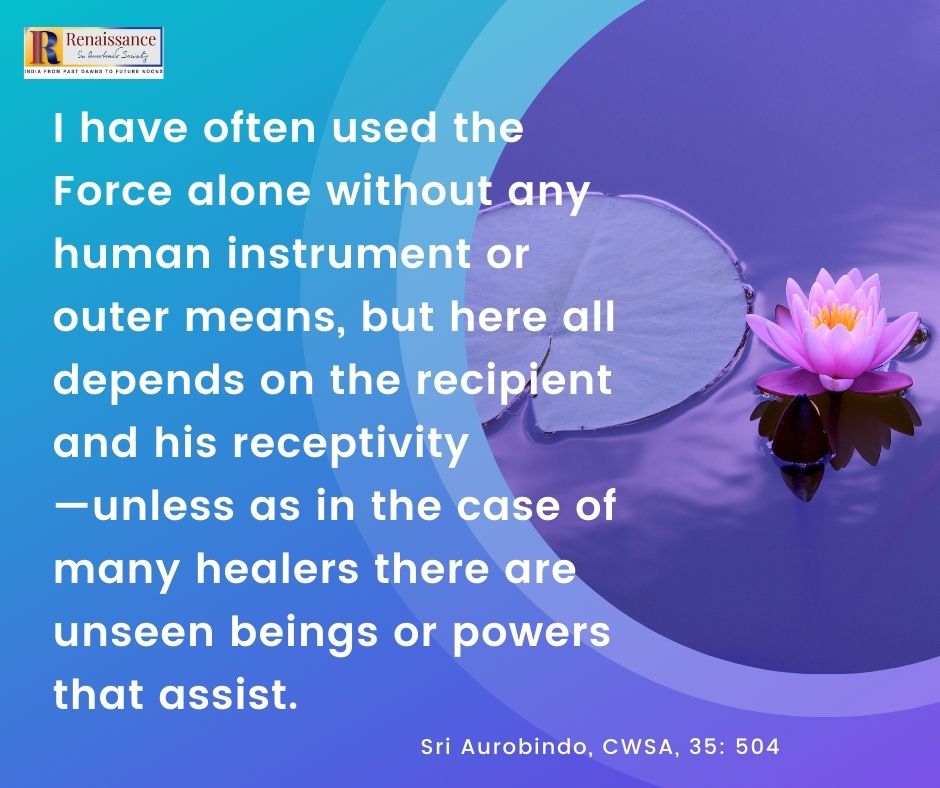
I believe now that, through the discipline of contemplation, I did in fact arrive at a new philosophy based on the values of humanism and the laws of concord. Freeing myself from theories and beliefs, I became conversant with the laws of the universe and developed a new understanding of suffering, freedom, discord and harmony, revolution and evolution.
In this book of factual events there is no place for a philosophical treatise. I mention it only because it was the development of these ideas which gave me the will to stay alive in order to pass them on to the West.
End of Excerpt

~ Design: Beloo Mehra

